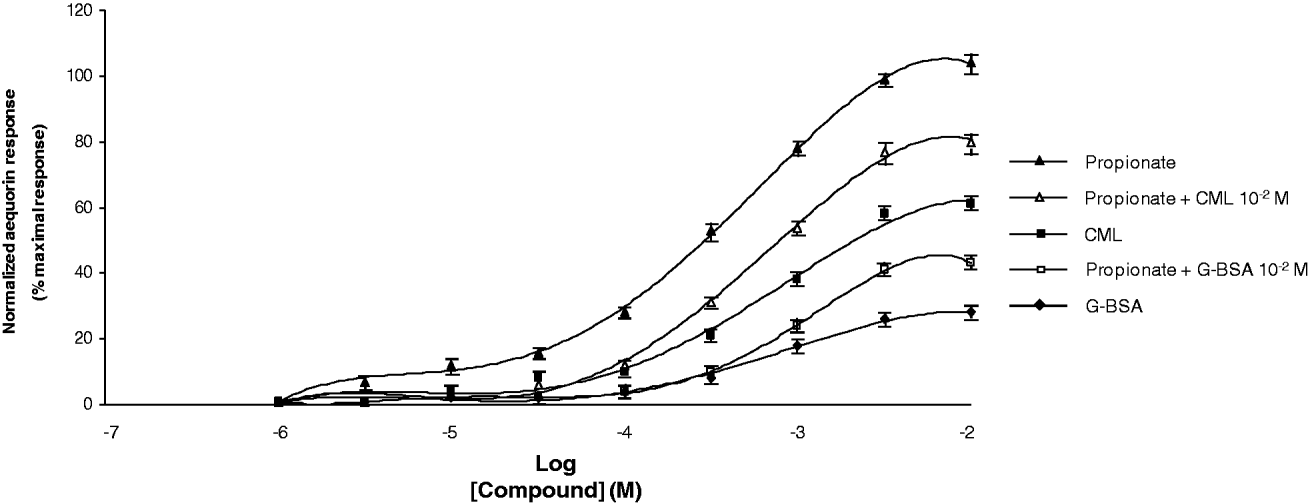The Maillard reaction is of outstanding importance for the formation a plethora of flavoured and coloured compounds in heat treated foods. Corresponding reactions, also known as “glycation”, occur in biological systems, where the formation of advanced glycation end products (AGEs) play an important pathophysiological role in diabetes and uremia. Carboxymethyllysine (CML) is a common AGE formed both in heated foods and the human body. It has been previously stated that CML and other AGEs can bind the receptor for AGEs (RAGE) resulting in activation of pro-inflammatory states. The aim of the present work was to unravel the effect of a diet enriched in CML-modified proteins over the progression of inflammatory bowel disease (IBD). The experiments were performed with transgenic mice that suffered from the depletion of the RAGE receptor or the free fatty acid receptor 2 (also known as GPR43). Such animals were fed with a diet enriched in CML (glycated BSA or G-BSA) and colitis was induced with dextrane sodium sulfate (DSS). In a cell line model system we have found for the first time that CML is able to bind to the GPR43 receptor. CML demonstrated a lower activity compared to short chain fatty acids (see figure), such as acetic or propionic acids. Thus, though a competitive mechanism, CML decreased the anti-inflammatory activity derived from GPR43 activation (decrease of IL-6 levels) in epithelium and immune cells and also provoked the down-regulation of GPR43. In addition, GPR43 blockage resulted in a low activation of the NLRP3 and NLRP6 inflammasomes, resulting in a decrease of the pro-inflammatory cytokine IL-1β and the antiinflammatory cytokine IL-18, giving rise to a lower repairing process in the gut epithelium. Finally, RAGE activation resulted in the development of a more severe inflammation with the release of inflammatory cytokines such as TNFα or IL-6 and the up-regulation of RAGE in gut epithelium. In conclusion, we have found that the consumption of a diet rich in heat-treated foods could increase the risk of IBD in those people with genetic predisposition.



